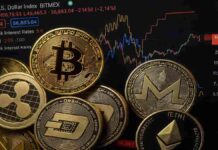# GLOBAL NEWS
In the past 12 hours, critical developments have emerged across various sectors, including economic data, corporate earnings, and geopolitical events. This article summarizes the key highlights from the United States, Europe, and Asia, reflecting the ongoing trends shaping the global landscape.
## US
The U.S. economy is showing signs of resilience despite ongoing challenges. Recent data indicates that new home sales soared by 20% in August, reaching a three-year high, even as mortgage rates remained elevated. This surge has been attributed to a combination of factors, including pent-up demand and a slight decrease in interest rates observed in September. However, mortgage demand has stalled following a mini refinance boom, suggesting that while buyers are eager, affordability remains a pressing concern.
In corporate news, tech giant Nvidia announced a significant cash investment in OpenAI, with most funds earmarked for leasing Nvidia chips, highlighting the deepening ties between AI development and hardware supply. Meanwhile, Micron Technology reported a 46% increase in sales, driven by the AI boom, further underscoring the tech sector’s robust growth.
On the political front, President Trump has made headlines with his remarks about Ukraine, stating that the country can reclaim all lost territory from Russia, a shift that has buoyed defense stocks. Additionally, Trump’s administration is facing criticism over its new $100,000 application fee for H-1B visas, which has raised concerns among small businesses about stifling innovation and access to talent.
## EUROPE
In Europe, economic sentiment is mixed as countries grapple with inflation and growth challenges. The European Central Bank (ECB) has opted to maintain its current interest rates amid ongoing uncertainty regarding inflation targets. This decision comes as inflation in the eurozone hovers around the 2% mark, leading some economists to question the sustainability of growth in the region.
Germany, often viewed as Europe’s economic powerhouse, is showing signs of strain. Recent reports indicate that consumer confidence has dipped, with businesses expressing concerns over current conditions and future prospects. The economic outlook has dimmed, prompting warnings from advisers about the need for structural reforms to ensure lasting growth.
Meanwhile, the United Kingdom is facing its own set of challenges as bank leaders call for policy stability ahead of a critical budget announcement. Market impatience is growing as expectations for tax reforms rise. The recent recognition of Palestinian statehood by the U.K. and other nations has stirred political discussions, potentially impacting future diplomatic relations.
## ASIA
In Asia, economic activity is being closely monitored as regional markets react to both local and global developments. Japan’s stock market reached record highs, with the Nikkei 225 index closing at 45,754.93, buoyed by strong corporate earnings and positive investor sentiment. However, concerns about the sustainability of this rally persist amidst geopolitical tensions and inflationary pressures.
China is making strides in the tech sector, with its homegrown BeiDou satellite navigation system gaining traction as an alternative to GPS. This move aligns with China’s goal of expanding its influence globally, a strategy that also includes boosting domestic technology firms amid a challenging international trade environment.
In the realm of corporate news, Xiaomi is planning to launch its electric vehicles in Europe by 2027, while the Chinese government is urging companies to avoid aggressive price-cutting strategies that could undermine profitability. Additionally, the recent surge in Chinese tech stocks reflects growing investor confidence in the sector, driven by advancements in artificial intelligence.
Overall, the global landscape remains dynamic, with economic indicators, corporate earnings, and geopolitical events shaping investor sentiment and policy decisions across regions. As we move forward, the interplay between these factors will be crucial in determining the trajectory of the global economy.





